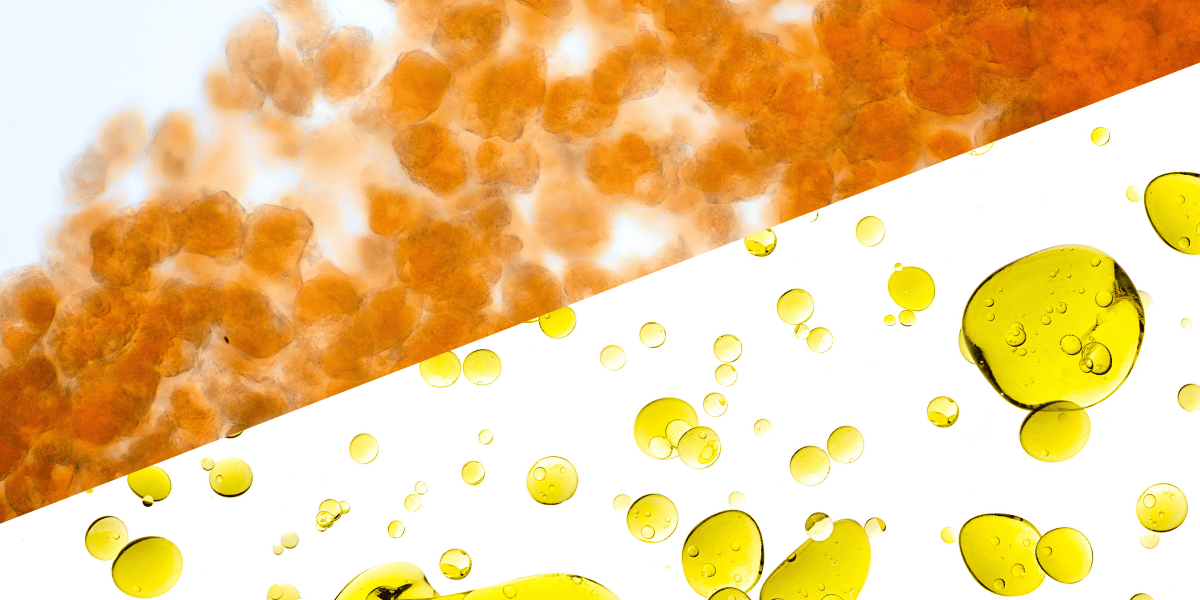Does Eating Breakfast Really Kickstart Your Metabolism?
The short answer is “no.” Consuming calories early in the morning doesn’t magically make you burn those calories off faster, you need physical...
.png?width=70&height=70&name=Stark_LogoMark%20(1).png)
2 min read
 Stark
:
Aug 17, 2016 2:59:10 PM
Stark
:
Aug 17, 2016 2:59:10 PM
It’s probably not a surprise to most people that the foods you’re putting into your body have a huge impact on your overall health and physical ability. But what tends to surprise a lot of people is the fact that hidden food sensitivities could be a key contributor to fatigue, bloating, mood swings, and even fat storage. Although they might sound like something out of a sci-fi novel at first, FODMAP and SIBO diets may be able to clear up many of these problems and get you back on track to reach your fitness and health goals.
As you may have guessed, FODMAP is an acronym, which stands for Fermentable Oligo-Di- Monosaccharides and Polyols. In other words, these are short-chain carbohydrates that have become staples in the western diet, and include lactose, fructose, and sorbitol.
The problem with these molecules is that because they’re so small, they’re typically either very poorly absorbed or not absorbed at all, which results in increased water content in the intestines [1]. Secondly, FODMAPs also produce high concentrates of hydrogen, carbon dioxide, and methane once they reach the large intestine, which can lead to gas, bloating, constipation, and a whole host of other digestive health concerns [2].
When you feel that you’ve been doing everything right, but aren’t seeing the fat loss results that you want, adopting a low FODMAP diet could be an excellent starting point to get to the root of the problem. Cutting out foods that contain FODMAPs may clear up symptoms like gas, bloating, mood swings, hormonal imbalances, and excess fat storage, especially around your midsection.
FODMAP foods to eliminate include [3]:
SIBO, which stands for Small Intestinal Bacterial Overgrowth, follows the same ideas as the low FODMAP diet. When bacteria in your digestive system grow at an accelerated rate, it creates excess gas and bloating in your intestine. Not only can this interfere with your body’s ability to properly digest food and absorb nutrients, but it can also lead to health complications such as neurological and muscular diseases due to vitamin deficiencies, obstruction of the small intestine, and diverticula [4].
The SIBO diet primarily focuses on eliminating the carbohydrates that cause this intestinal bacteria to thrive, including:
The concept behind both the low FODMAP diet and the SIBO diet is that your gut health is directly related to so many critical aspects of your health as well as your ability to lose fat. Research has shown that excess “bad” bacteria in your digestive system causes chronic inflammation, which, in turn, often leads to metabolic abnormalities, insulin resistance, and even a tendency to eat more [5]. In short, when your digestive system cannot optimally function, your body won’t look, feel and perform like it should.
Aside from giving these diets a try, there are a number of other lifestyle changes that you can adopt to help improve your digestive health and the effectiveness of your weight loss plan. These include:
If you’re unhappy with a lack of progress from your exercise and nutrition plan, something needs to change. In many cases, eliminating certain foods from your diet could significantly improve a number of health concerns. Paying attention to FODMAPs and SIBO could help you to gain more energy, become more alert and uplifted, and finally start to see the fat loss you’ve been working for.
[1] Gastroenterology
[2] Journal of Gastroenterology and Hepatology
[3] Stanford Hospital and Clinics
[4] Gastroenterology and Hepatology
[5] Science

The short answer is “no.” Consuming calories early in the morning doesn’t magically make you burn those calories off faster, you need physical...

In the ever-evolving landscape of nutrition, the quest for a healthier lifestyle often leads people to explore the intricacies of their dietary...

Fat is a very common term, but many people use this single word interchangeably to describe a variety of things. Fat is a macronutrient in our food,...